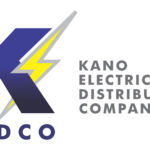Agriculture experts have called for more investment in oil palm production to enhance the growth and development of the sector. They said this in separate interviews with the News Agency of Nigeria (NAN) in Lagos.
The experts spoke against the backdrop of a report published recently, that Nigeria imported N299.6billion worth of palm oil from 2017 to 2022.
The publication, which relied on quarterly reports by the National Bureau of Statistics (NBS), indicated that ‘Palm Crude Oil’ is often among the top five imported agricultural products into the country.
Professor Adetunji Iyiola, a fellow at the National Agriculture and Extension Research Liaison Service (NAERLS), described the importation of oil palm by an agrarian country like Nigeria as an anomaly.
- 10th NASS: N/Central govs back Sani Musa for dep Senate President
- Why NAHCON must review 2023 Hajj airlift plan – CSO
Iyiola said experts needed to develop new strategies to boost local oil palm production in the country.
“The strategy to boost the oil palm sector is to go back to the basics.
“What we need is to make a new habit of investing in oil palm production in Nigeria. It is a very lucrative business.
“We should also invest more in the local processing of oil palm.
“Within the space of four to five years, an investment in oil palm would have begun yielding returns; therefore, we need to go back to the basics.
“We have moneybags that should invest in the sector. We should see cultivating oil palm as a long-term investment and should include the entire value chain from production to processing and export.
“As a country, we should not import palm oil because we have a very fertile land for oil palm production; from Benin to Osun and Ondo. We have good palms that can grow well,” Iyiola said.’’
He said oil palm could be grown and sustained in all the South-South states of the country.
He called on the government to invest in agriculture extension, especially in oil palm cultivation.
“Farmers need to be equipped with information on oil cultivation to boost local production.
“Government should also aid local processing of oil palm. The entire value chain should be boosted for the funds we waste in palm oil importation to be invested back into the economy,’’ he added.
On his part, Mr Akin Alabi, co-founder, Corporate Farmers International, said extra efforts must be put in producing, processing and marketing the commodity.
Alabi said the country ought to tackle the issues around production and processing of the commodity to grow the sector.
“In terms of production, we do not have premium seeds. Our research institutes need to work hard in the development of premium seeds around the entire oil palm value chain.
“The seeds we have currently are not the standard, so we require to boost the sector’s production locally, compared to other Asian countries, such as Malaysia.
“We have another problem in terms of production; we do not have enough oil palm producers.
“We have clusters of oil palm producers in the South East, South South and South West.
“We need oil palm producers in large scale to produce palm oil because our land is fertile enough for it,” he noted.
He said Nigeria was yet to tap into the entire value chain of oil palm production.
“Another issue is local processing of oil palm. As a country, we have not properly tapped into the entire value chain of oil palm production. We still rely on local production methods for domestic consumption.
“We must go beyond oil palm production for consumption to industrial use.
“When we can get this right, we will be able to expand wealth creation across the oil palm value chain,” Alabi said. (NAN)




